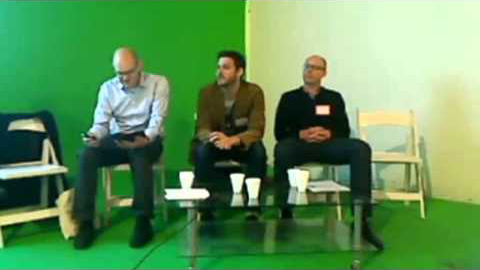With social media, the compelling opportunities for self-expression outstrip the supply of things we have to confidently say about ourselves. The demand for self-expression overwhelms what we might dredge up from the inside, from our true selves. So the self that we’re expressing in social media has to be posited elsewhere. We start to borrow from the network. We start to borrow from imagined future selves that we can project. We start to borrow from the media themselves and from other kinds of content circulating there that we can now constitute ourselves with.
Theorizing the Web 2014

Virality, Uncreativity and the End of Self-Expression
presented by Rob Horning

Meme Warriors and Media Viruses: Theorizing the Persuasive Political Power of the Web
presented by Joel Penney
[The] persuasion model advanced by Rushkoff and Lasn is particularly useful for thinking critically through a variety of recent politically-oriented web phenomena like profile picture changing campaigns, political viral videos, hashtag activism and the like.

Lulz Will Find a Way: How Meme Culture is Empowering civic Engagement in the Socialist Republic of Vietnam
presented by Patrick Sharbaugh
Among other things [The Cute Cat Theory] suggests that ordinary online tools and platforms, the kind that people commonly use to share innocuous content such as cute pictures of cats make it possible for non-activist users to create and disseminate activist content online.
